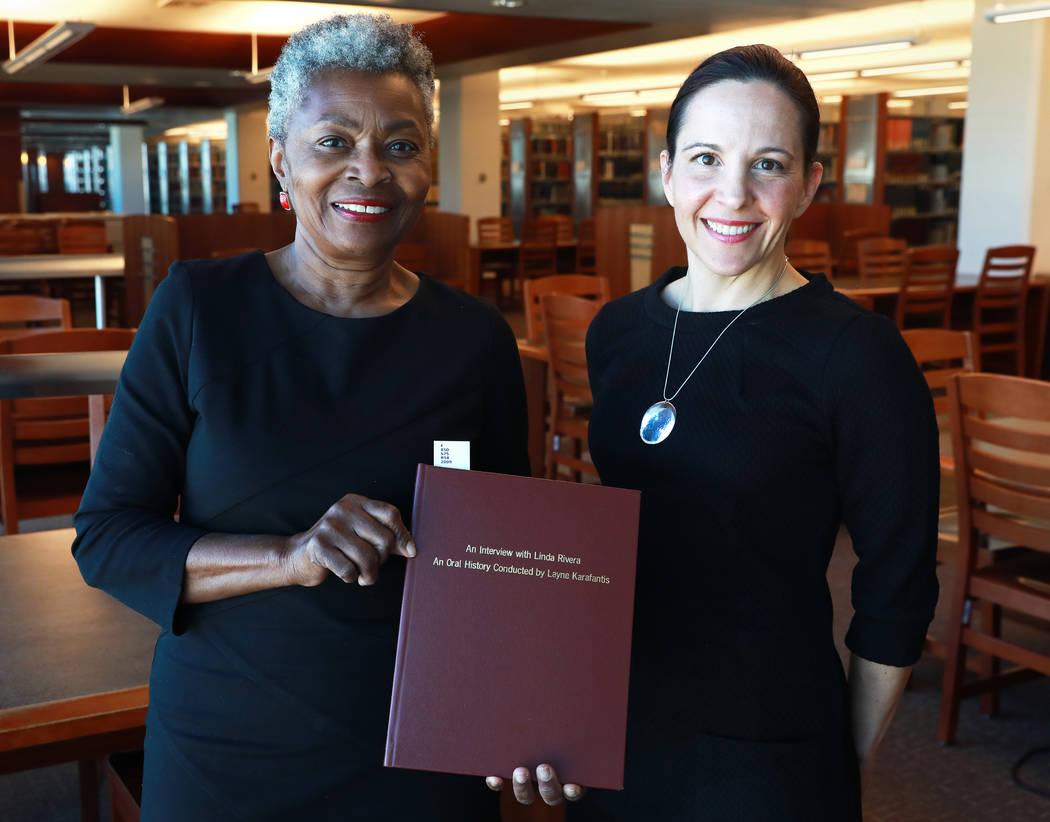UNLV gets grant to create ‘Latino Voices’ oral histories
Es nuestro turno ahora. Translation:“It’s our turn now.” Say gracias to UNLV.
“Since about 25 percent of UNLV’s student population is Hispanic and there is very little historical documentation on Hispanic members of our community, we really wanted to rectify that gap,” says Michelle Light, division director of Special Collections and Archives at UNLV’s University Libraries. Recently, the libraries received a $100,000 grant from the National Endowment for the Humanities to create “Latino Voices in Southern Nevada,” its latest oral history project, following similar UNLV chronicles of the region’s Jewish and African-American communities.
“The political climate makes it more important to know the truth, and maybe it’s given us a little shove,” says Claytee White, director of the libraries’ Oral History Research Center. “We need to know about the customs. We need to know about the culture. We need to know about the migration patterns. This is important to this state, to this city, to this country.”
By issuing a “challenge grant,” the NEH requires the university to match its largess by raising $100,000 in external funding over the course of the two-year project. “We need to strategize about that, but we need to raise $50,000 in order to get the first $50,000 and our goal is to do that by June so we can get started in the next semester,” Light says. “We hope to get funds from individual and organizational commitments.”
Over two years, eight to 12 students — who will preferably be bilingual, though it is not required — will be recruited to conduct interviews, and will be mentored on interviewing techniques and critical listening skills. At least 90 oral histories are planned, spotlighting Southern Nevada Hispanics who comprise a mosaic of occupations, economic, religious and cultural status, political affiliations and social and community connections.
Notable political, judicial and cultural figures will be included, but White points out that they will reach out to gather referrals for potential interviewees across the spectrum of the Hispanic community. “We will start with the Latin Chamber of Commerce and people on UNLV’s campus who teach history,” White says, specifically citing history Prof. Emeritus Thomas Wright, who has written numerous books about 20th-century Latin American political history, as well as “The Peoples of Las Vegas: One City, Many Faces” in 2005, and “More Peoples of Las Vegas” in 2010.
“The research has already started because he will know some of the maids, some of the valets, some of the cooks, some of the landscape people, and they are important people in the community. They are as valuable as the president of the chamber of commerce,” White says, noting that when completed, the oral histories will be made available to the public at the libraries, and possibly online.
“We’re going to the population itself. What was it like coming here from Mexico? Or from Cuba in 1959, when your country has been taken over by Castro and a different type of government? We’re going to learn from the horse’s mouth.”
Diversity regarding immigrants’ countries of origin will also be highlighted. “What’s interesting about Southern Nevada’s population is that it’s more diverse than other Hispanic communities in the West,” Light says. As of 2015, the majority of immigrants arrived from Mexico, the Philippines, El Salvador and Cuba, as estimated by the American Immigration Council.
“I’m hoping we can expand beyond stereotypes,” Light adds. “We want people to use these oral histories 30 or 40 years from now, to speak to future generations.”
Contact Steve Bornfeld at sbornfeld@reviewjournal.com. Follow @sborn1 on Twitter.




















